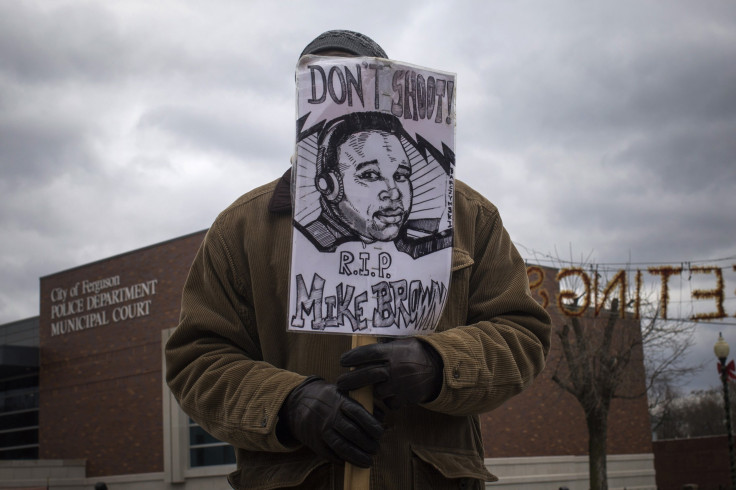Ferguson Grand Jury Reactions: Ferguson Grand Jury Announces Darren Wilson Indictment Decision

After months of anticipation, a grand jury in Ferguson, Missouri, announced Monday its decision not to indict police officer Darren Wilson in the August shooting death of Michael Brown, an unarmed black teenager. The decision was announced in a press conference by the St. Louis County prosecutor’s office and was met with mixed reactions from community leaders in the St. Louis area.
The 12-member grand jury panel had been deliberating on whether to indict Wilson, who has been in hiding since the Aug. 9 shooting, on one of four charges, ranging from second-degree involuntary manslaughter to second-degree murder. Details of the jury’s deliberations had leaked in recent weeks, sparking concern among Brown’s supporters charges would not be filed against Wilson, the Washington Post reported.
St. Louis County Prosecuting Attorney Robert McCulloch expresssed support for Brown's family while describing the grand jury's decision Monday. "They lost a loved one to violence," he said.
Jeffrey Mittman, executive director of the American Civil Liberties Union of Missouri, said Brown's death highlighted a growing trend of excessive police force against minorities. "While many officers carry out their jobs with respect for the communities they serve, we must confront the profound disconnect and disrespect that many communities of color experience with their local law enforcement," he said in a statement emailed to reporters Monday night. "We must end the prevailing policing paradigm where police departments are more like occupying forces, imposing their will to control communities. This 'us vs. them' policing antagonizes communities by casting a blanket of suspicion over entire neighborhoods, often under the guise of preventing crime."
The August shooting saw days of sometimes violent protests this summer, drawing national attention to a case that for some has encapsulated broader issues around race and law enforcement across the nation. Protests have continued, albeit on a smaller scale, with demonstrators beginning to gather in force ahead of the announcement of the decision.
Local officials had been bracing for the possibility the highly charged decision would lead to violence, with various contingency plans being prepared in advance by community leaders and government officials. Missouri Gov. Jay Nixon declared a state of emergency and called up the National Guard last week in anticipation of possible unrest. These efforts have not been confined to the state level, with the FBI also issuing a bulletin to law enforcement across the country calling for vigilance ahead of the decision. The agency also contributed about 100 agents to the St. Louis area, according to CNN.
President Barack Obama urged protesters rallying in Ferguson to do so peacefully ahead of the decision in a statement released by White House Press Secretary Josh Earnest, according to Reuters.
Here is a roundup of the reaction to the grand jury's decision:
Outside the Ferguson Police Department right now. https://t.co/aOOP7dBZme
— Antonio French (@AntonioFrench) November 25, 2014Of all the stuff to talk about McCullough threw punches at the media. This isn't the time #MikeBrown #Ferguson
— Patricia Bynes (@Patricialicious) November 25, 2014I continue to believe that our region will seize the chance to be better at how we treat each other. #fgs
— MayorSlay.com (@MayorSlay) November 24, 2014The police came out in riot gear as soon as the announcement dropped pic.twitter.com/pJMGNMQWJJ
— Alexis (@MusicOverPeople) November 25, 2014Why would I believe in a justice system that was not made for us? Why?
— ShordeeDooWhop (@Nettaaaaaaaa) November 25, 2014No matter the Grand Jury's decision, @SLMPD is dedicated to keeping the peace & protecting the rights of ALL citizens. #preservingpeace
— St. Louis, MO Police (@SLMPD) November 25, 2014#MikeBrown #Ferguson barricades already ripped down by protestors in NYC pic.twitter.com/qaj8LJAw9z
— Luke Rudkowski (@Lukewearechange) November 25, 2014I feel really bad for the family of Mike Brown. To my brothers & sisters in Ferguson my heart is with you & I will join you soon.
— Talib Kweli Greene (@TalibKweli) November 25, 2014© Copyright IBTimes 2025. All rights reserved.






















